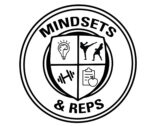
The shiny brass ring of successful entrepreneurship is coveted by many but attained by few. There are some misconceptions about the business mindset and what type of person you have to be in order to achieve that success.
In what could only be considered laughable, some employers claim to seek entrepreneurial spirit on job descriptions. In reality, they want the opposite. They want an agreeable person who is dedicated to their job and has no aspirations of leaving. They want the person who will work overtime for them and climb the corporate ladder.
Some people falsely believe that in order to pursue entrepreneurship you must have some sort of rebellious attitude. They believe you have to be the type of person to storm your way out of the building and tell your boss off on the way.
In reality there is not one specific personality trait that applies to all entrepreneurs. Character traits, which will be discussed later, are more consistent amongst them. But the personalities of business owners and entrepreneurs vary.
Some are introverted, some are extroverted. Some are energetic while others exude a more quiet confidence. Think about all successful people and how their personalities differ.
Kobe Bryant and Michael Jordan are the types to hit a shot over your outstretched hand and let you know about it right after. On the flipside, Tim Duncan and Klay Thompson could drop 40 points on you and not say a word.
CEOs like Mark Cuban and Elon Musk are in the public eye almost every day. They’re on television and social media speaking their mind. At the same time there are CEOs running billion dollar companies that you’ve never heard of, working behind the scenes.
The personalities differ, but the mindset, principles, and habits are the same. With the advent of digital technology and the ability to connect with people around the world, now is the best time to take the leap into entrepreneurship. No longer is there a barrier where you need to catch a lucky break to make it.
How do you know if this lifestyle applies to you? Look to the questions below to find out if you fit the mold of an entrepreneur.
Do You Value Independence?
It’s lonely at the top, as they say. It’s also lonely on the way there.
Most people who go the entrepreneurship route do so as a sole proprietor, which is a business with one owner. At some point the business may expand, but at the very least it usually starts out this way. It’s just you; all the burden and responsibility falls on your lap.
A sole proprietor does all the scheduling, planning, and decision making. This may be an intimidating forecast for some, but for entrepreneurs it’s music to their ears. Think about all the times you worked for someone else where they made a crucial business decision you disagreed with. That’s no longer an issue.
You are now the owner and operator. You are the head coach who calls all the plays.
Entrepreneurs need the ability to work independently and problem solve on their own. There’s no one to differ to. Luckily there are so many free resources on the internet that the answer to any question lies somewhere if you’re willing to take the time to look.

This is part of the reason why now is the best time to seek entrepreneurship. The blueprint to success in your niche is out there. The path may be different for everyone, but a simple Google, YouTube, or even Reddit search can steer you in the right direction.
Were you the type of person who hated group projects in school? Did you do all the work because you didn’t trust your classmates? Working for yourself seems like a perfect fit.
Even if you work in a small team trying to get a business off the ground, there will be times where you work alone. You need to be able to thrive in these situations.
Are You Self Motivated?
This aspect of entrepreneurship is often overlooked, or assumed to be true.
Sure, I can work for myself. I worked hard for every company that ever employed me, so there’s no reason I couldn’t do it when I’m the one reaping the benefits.
It sounds good on paper, but it’s harder than most people think. When the boss is creeping over your shoulder, you’re naturally going to work harder. When someone else is setting the deadlines, and other people are reliant on you, there is pressure to get things done.
Now that pressure isn’t there. It’s just you. If something doesn’t get done on time, or if the company fails, no one else is affected. People who work hard for their employer make the assumption that they’ll do so for themselves, but that isn’t always the case.
9-5 isn’t a thing anymore for entrepreneurs. Neither are weekends. Time takes on a completely different tone. It’s almost irrelevant because the work never stops. There is always something that can be done.
It’s easy to get lazy or sidetracked when your workspace goes from an office to your living room. It’s easy to get distracted when your workplace attire goes from a buttoned down shirt to shorts and a t-shirt.
The discipline to work hard consistently when there are no external forces putting pressure on you is the aspect of entrepreneurship that is most often taken for granted.
External motivators are a big part of what make people productive. No one wants to get fired. No one wants to get yelled at by their boss. People are motivated by fear more often than passion.
Entrepreneurship takes this out of the equation. However, a tactic some people use to circumvent this is to put themselves out there.
When you tell people you’re starting a business, or when you post it on social media, the pressure is right back on. It’s not as strong a motivator as a “boss”, but people still don’t want the embarrassment of failure in front of their peers.
This is one tactic to add some external motivation but in the end, it’s minor. People forget, or downright don’t care. Internal motivation is necessary for success. You must have the discipline to work when no one else is watching.
Can You Deal With Struggle?
The road to the top has twists, turns, cliffs, wild animals, barriers, and possibly flooding. No one makes it without intense struggle. Even luck can only take you so far.
If you watch MMA or boxing, you know there are certain fighters that can get battered but never quit. They keep coming forward, almost like zombies. These are guys like Nate Diaz or Frankie Edgar.
But other fighters wilt under the pressure. They take a hard shot and fold. These are talented fighters too. But when the going gets tough, they quit.
Like any important endeavor, there will be struggle in entrepreneurship. It is inevitable. You need to be the type of person that can weather the storm and move forward when things go poorly.
An important character trait for this is adaptability. Plans can look good on paper, but when they’re implemented things can go awry. You have to be able to assess the situation and decide if the answer is patience or to pivot toward a new strategy.
The idea of embracing the journey sounds clichéd, but it holds a great deal of truth. Anything worth doing, whether it’s starting a business, getting in shape, or building a house, is long and arduous. The rewarding feeling once you reach the pinnacle only occurs because of the perseverance it took to get there.
Can You Sell?
If you’re skilled at selling, you’ll never be unemployed. But how does that apply to entrepreneurship?
Many people start a business with the goal of selling goods and services. Obviously, skills like selling, marketing, and copywriting are vital toward the direct success of the business. But selling isn’t just about the bottom line.
Do you have the ability to sell yourself? Can you sell an article, YouTube channel, or a book? In the digital era, the ability to drum up interest and get people to consume your content is just as important as selling physical goods.
This is particularly important for content based entrepreneurs. Some people don’t sell goods or services but make their income through website ad revenue, YouTube ad revenue, and affiliate marketing. To be successful you need to be informative, entertaining (enough), and satisfy the needs of people.
Piggybacking off the dealing with struggle narrative, this will not come quickly. Most successful content creators go through dozens if not hundreds of articles and videos before finding what works. Alas, most people quit before they even reach that point.
This is especially true now due to the sophistication of Google’s search algorithm. Shady, black-hat SEO tactics no longer work, particularly in the long term. You get noticed by putting out better content than your competitors.
Self Help vs. Self Improvement
Self help and self improvement may seem like synonymous terms, but they are not.
Self help is basically external motivation; through a book, podcast, or video. It works on occasion, but it is fleeting. Sometimes the kick in the pants from that motivational speech is enough to get you going on a day where you’re feeling lazy, but you can only go to that well so often. At a certain point it loses its appeal and stops working.
Go through the self help section of your local bookstore and you’ll find quite the offering. Truthfully, if you think a book is going to change your life it’s highly unlikely.
Sometimes you will see YouTubers talk about their “5 books that changed my life.” I’m not saying these books don’t have value. But in reality, these people had the drive to be successful with or without those books.
Self improvement is not external motivation, it’s the ability to learn and perfect your craft. Similar to self help, it comes in the form of books, podcasts, and videos. However, the content is much different.
Self improvement resources teach you how to write better, how to code, or how to optimize your website. They are resources to teach you tangible skills to improve your business. They are where you go for knowledge, as opposed to a “rah rah” soliloquy.

Sometimes you can get the best of both. Gary Vee is an example of this. While I think sometimes he leans into the motivational stuff a bit much, some of his keynotes provide a lot of good, usable advice.
The best people to follow are the ordinary people who have been through the process of building a business from scratch. It is a reminder that this dream is in fact possible, and that you don’t necessarily need financial backing, supreme intelligence, or high level skills.
Final Notes
This is the best opportunity in the history of modern humanity to start as business. No longer do you need a huge loan or a lucky break due to the nature of e-commerce and the internet as a whole.
Since this is a long term endeavor, please choose something you are passionate about. Even if it doesn’t seem highly profitable, your interest in the subject will keep you going on days you don’t want to work.
I have a fitness blog and YouTube page, not a drop-shipping business for phone chargers. That never interested me even if it would potentially make me more money. There would undoubtedly be a point where I said I don’t want to do this anymore if I chose a business like that.
But I work out almost every day and study nutrition in my spare time. Watching a one hour video on dieting doesn’t feel like work. It’s not a major challenge for me to write this article on a Saturday.
At the end of the day, even if it doesn’t work out, it’s not a major loss. You can always find another job.
That’s the worst case scenario. Best case scenario your business flourishes and you have the independent lifestyle people could only dream of. Even if you fall somewhere in the middle and establish some passive income, that’s still extra money in your pocket every month. Sure you may have to work full time, but now you have some extra cash for a nicer car or an extra vacation.
Whatever business model you choose, the resources are out there. There’s a good chance you can find them for free as well. If you think you check all the boxes outlined in this article, there’s no reason why you shouldn’t at least try.
